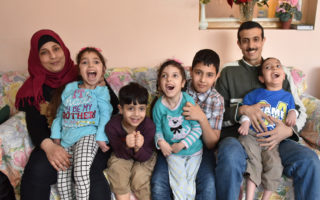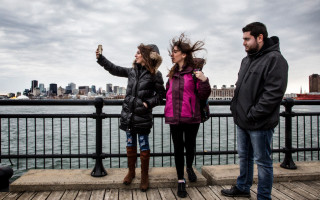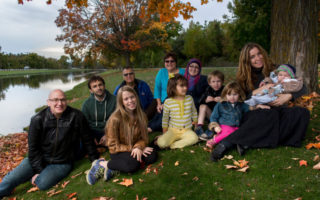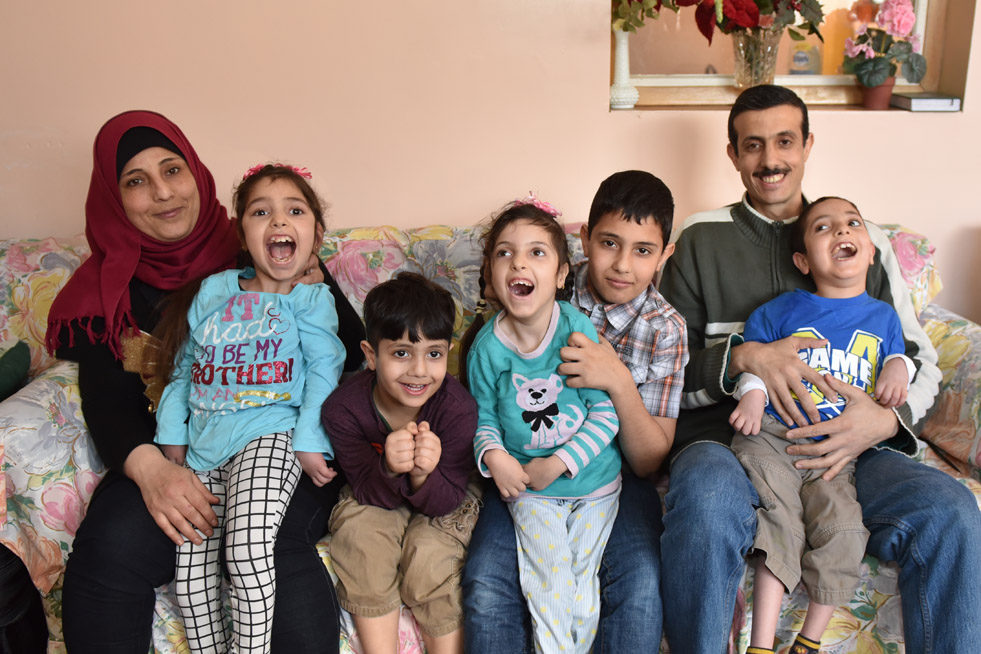
The Alrajab family enjoying their home in Saint John, New Brunswick. From left to right: Mother Shamsa; Sarah, 11; Muhammed, 5; Barraa, 7; Adnan, 12; Abdullah, 9 and Father Nasser. © Courtesy of Miranda O’Leary Photography
By Erla Cabrera, Ottawa, Canada – 24 April 2017
A Syrian mother recalls the warm welcome received upon her family’s arrival
Thanks to the warm welcome and 24-hour care provided by a group of YMCA volunteers in Saint John, New Brunswick, a newly resettled Syrian family with disabled children is able to enjoy their lives.
“We do all we can to help them get through each day, but we are merely volunteers who were initially committed to help for a six week period only,” says Miranda O’Leary, a YMCA volunteer. “Now we are friends and just want to help the Alrajabs. They are so eager to learn and adapt to their new life in Canada.”
Nasser and Shamsa Alrajab, and their five children aged five to twelve, arrived to Saint John, New Brunswick on 4 February 2016, as part of the Canadian Initiative that transferred over 40,000 Syrian refugees to Canada. They were resettled from Lebanon, where they were living in exile after having fled Syria.
Three of their five children, Sarah (11), Abdullah (9) and Barraa (7), are severely disabled. They were diagnosed with a neuromuscular disorder called leukodystrophy that causes atrophy in the muscles and nerves. The other two children, Adnan (12) and Muhammed (5) are doing well. Their father, Nasser, a former construction worker, suffers himself from a brain injury as a result of a work-related accident in his native Syria. With the support of YMCA volunteers, their mother, Shamsa, is trying to hold the fort.
“The smiles on the faces of my three disabled children is a dream come true”
“I am so grateful for the opportunity to come to Canada. Having two of my children going to school and the smiles I now see on the faces of my other three disabled children is a dream come true,” says Mother Shamsa, through an interpreter. “Back home, they would have been made fun of or ignored but here, everyone wants to help out. I am so touched by this and can’t wait to also give back to the community”, she added in a shivering voice.
Upon arrival in Saint John, Sarah, Abdullah and Barraa were rushed to the Saint John Regional Hospital. Meeting their medical needs in the Lebanon was next to impossible. UNHCR and its partners do not receive any funding to provide such special medical care or specific diet that the children’s conditions require.
This is why resettlement to a country like Canada is the only life-saving solution.
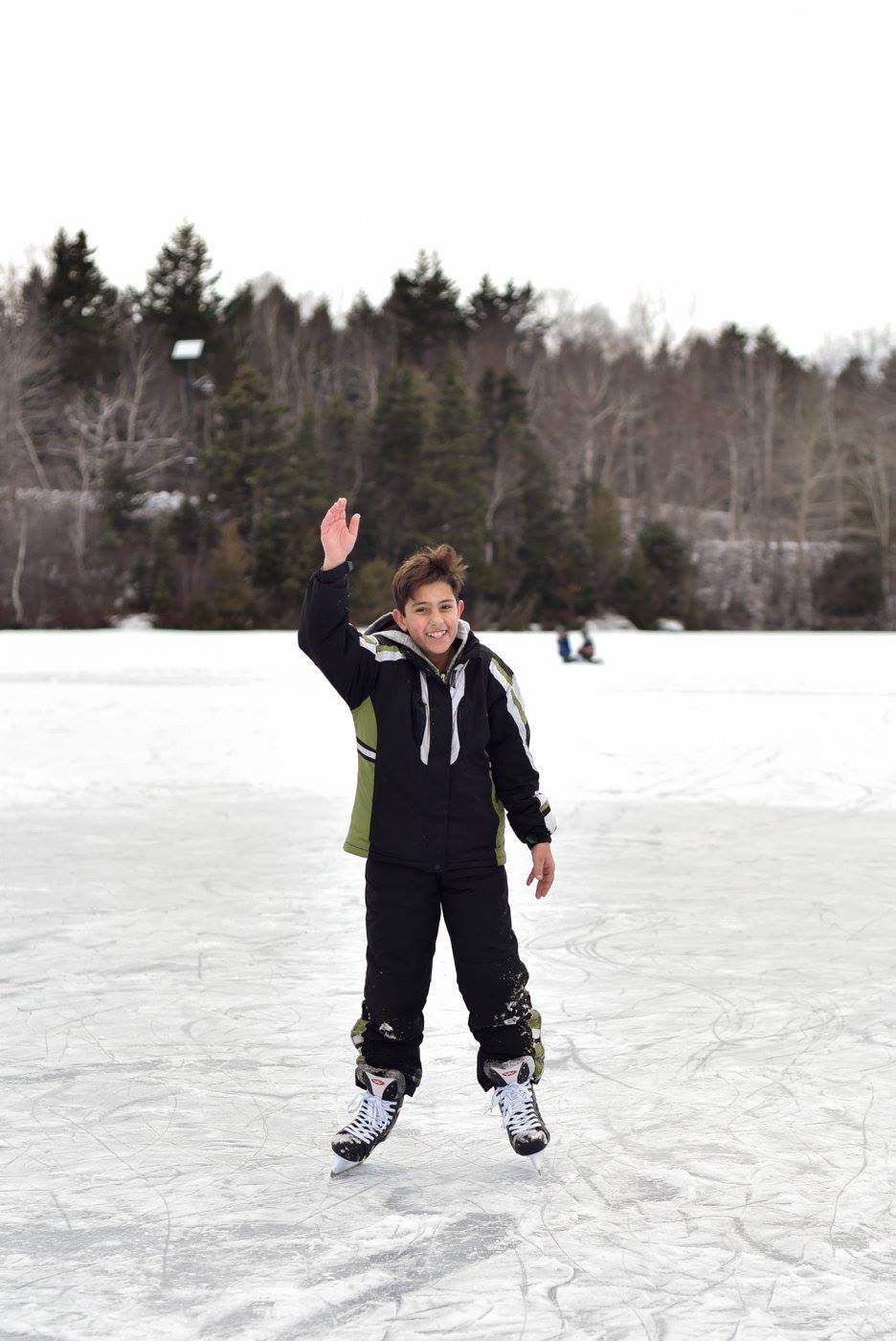
Adnan’s first time skating on a frozen lake. © Courtesy of Miranda O’Leary Photography
Resettlement: a unique and concrete solution
Resettlement continues to be a unique and tangible response to those in need of protection as it offers extremely vulnerable refugees an opportunity to restart their lives in safety and dignity.
“For a disabled child, resettlement is particularly critical as it opens up opportunities for education, medical and psychological support, and often, a more conducive non-discriminatory environment in which to grow and flourish,” explains Michael Casasola, UNHCR Senior Resettlement Officer.
“Because so few resettlement places are available globally – with less than 1% of the world’s refugees able to be resettled each year, UNHCR tries to focus this precious solution to assist those who are the most vulnerable and the most at risk. Unfortunately, it means that scores of refugees will be faced with the tragic consequences of underfunding of our operations and lack of resettlement quotas” he adds.
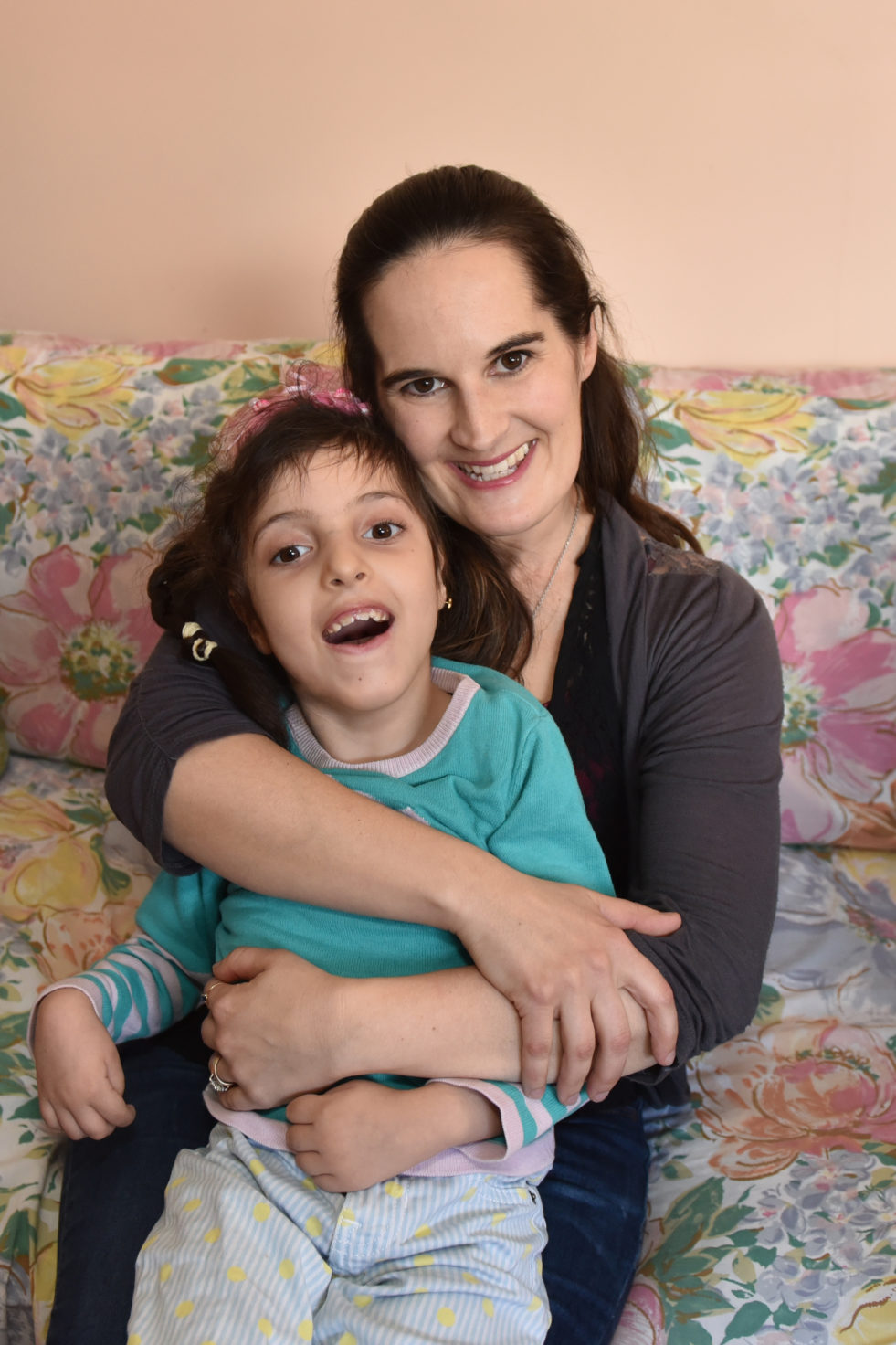
Head volunteer, Miranda O’Leary, loves spending time with Barraa, the youngest daughter of the Alrajab family. © Courtesy of Miranda O’Leary Photography
The blockage of bowels and acute malnutrition that the three kids were suffering from, upon arrival to Canada, made them stay in the Saint John Regional Hospital for three weeks.
“To watch a mother and father, who came to a country to finally be free, be immediately faced with such difficult choices about their children’s lives was heartbreaking. But I was inspired to witness Shamsa’s enduring strength and love that only a mother could have,” says Miranda, a mother of five herself who understands well what it means to worry about a child’s wellbeing.
“I was inspired to witness Shamsa’s enduring strength and love that only a mother could have”
Miranda’s decision to stay by Shamsa’s side during the entire period of the children’s hospitalization when other volunteers helped Nasser find a home and settle their two other kids, got both ladies to even bond further. They talk, confided in one another, communicating through Google Translate. They both recalled funny moments, trying to make sense of each other’s puzzled looks. Shamsa also told Miranda about constantly worrying about siblings in Lebanon and Syria that she might not see again.
Last December, the Alrajabs were reunited with Shamsa’s brother and his family who were also resettled from Lebanon. This was a wonderful Christmas present for the Alrajabs who are now able to count on extra family support in addition to Miranda and the all their new friends in Saint John.
“My husband and I are taking English classes. Things are a bit slow, given our responsibility for our children, but we can’t wait to start speaking English fluently. I would like to be able to speak more with our neighbours and to find a job,” says Shamsa. “Muhammed and Adnan already speak English and are very happy to play with their friends in the snow.”



